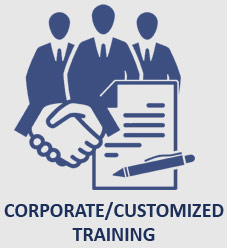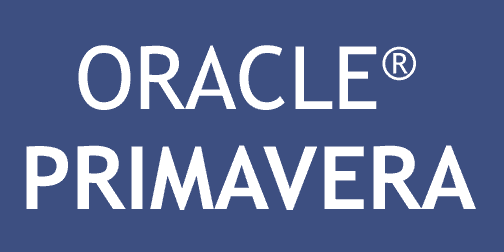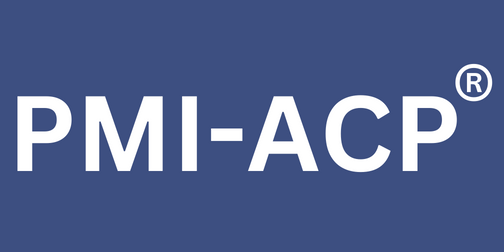
Incorporating Agile Project Management in Non-Tech Industries
Posted On July 22, 2024 - 16:58 PM
Agile methodology is often touted as the cornerstone for project management in the technology world. However, it has a lot of potential to offer non-tech companies that are ready to move towards dynamic operational models. Traditionally synonymous with software development, Agile's principles are universal--emphasizing adaptability, customer focus, and continual improvement. This blog will show how non-tech companies can harness the transformative powers of Agile and dispel the myth that Agile is only for tech companies. We will explore how Agile's core principles can be tailored to suit the specific landscapes of different sectors and propel businesses towards growth and innovation.
Demystifying Agile for Non-Tech Industries
Agile is about prioritizing the customer, embracing change and delivering early and often value. These principles can be applied to both a boutique retailer and a software startup. Agile, which puts more emphasis on people and interaction than processes and tools and responds to change rather than following a plan, can revolutionize non-tech companies.
Agile Myths in Non-Technical Sectors
Agile is often misunderstood as being inextricably tied to software development and coding. Agile is more about the mindset and methodology than the actual product or service. Iterative development can be applied to marketing campaigns and product design as well as strategic planning. Agile can be adopted by non-tech companies to improve their processes.
Agile Practices are Versatile
Agile practices such as Scrum and Kanban are not prescriptive. They are frameworks which provide a starting place for process management. Agile practices are also adaptable. Scrum sprints, for example -- time-boxed intervals where a particular work must be completed -- can be applied to non tech projects like event planning or product launches. Kanban boards are a visual way to manage workflows across industries, from manufacturing to publishing. They help teams visualize their tasks and progress.
Agile Adaptation to Different Business Models
Understanding the philosophy behind Agile frameworks is key to adopting it outside the tech world. You can adapt them to your context by understanding their philosophy. It's all about creating a culture of collaboration, which values customer feedback and adapts to changing situations. Agile's iterative process allows businesses to respond with flexibility to the market that traditional models cannot match.
Agile Benefits in a Non-Technical Context
Agile methods can be implemented in non-tech companies to achieve transformative results that can redefine the efficiency of organizations and customer engagement.
-
Rapid Market Adaptation : Agile's iterative cycle allows non-tech companies to react quickly to market changes. Companies can quickly adjust their operations and strategies to meet changing market conditions or customer needs by regularly reviewing their progress and priorities.
-
Customer-Centric Products Development: Agile allows non-tech companies to involve their customers in the development of products and services. This feedback loop is continuous, ensuring that products and services are tailored to the needs of customers. It also improves customer satisfaction and loyalty.
-
Increased team productivity: Agile practices encourage a culture of collaboration where members have clear objectives and autonomy to reach them. It not only increases job satisfaction, but also productivity because teams are more cohesive and work towards common goals.
-
Reduce Waste and Improve Efficiency: Agile helps companies identify and eliminate inefficiencies within their processes. Companies can quickly identify and fix problems by focusing on small, incremental improvements. They also save resources and focus on high-value tasks.
-
Consistent value delivery: Agile allows companies to deliver work in small segments that are easily usable, which ensures a constant flow of value for customers. It not only improves cash flow but also satisfies the customer.
-
Enhanced Team Collaboration: Agile is built on cross-functional collaboration, which breaks down silos by leveraging the diverse skills of teams. This results in more innovative solutions, a unified business approach and the best use of talent within the company. Agile principles can be applied to non-technical environments, giving businesses the ability to adapt, engage customers, and improve internal efficiency.
Agile Strategies for Non-Technical Businesses
Agile is a great fit for non-tech businesses. Here are some strategies to make Agile work in non-technical environments.
-
Customizing Agile Frameworks: Agile frameworks such as Scrum and Kanban can be adapted by non-tech companies to suit their industry's needs. Scrum sprints could, for example, focus on customer service or merchandising in a retail environment, while Kanban's inventory management or marketing campaign tracking can be done using Kanban.
-
Learn from Success Stories: Agile has been successfully adopted by many non-technical companies. Agile has been used by service industries like banking and hospitality to improve the customer experience. Agile has been used in manufacturing to improve operational efficiency and for product development. Non-tech companies can learn to use Agile principles by studying these examples.
-
Implementing best practices: The best practices for non tech Agile implementation are to start with a small pilot project, get executive buy-in and provide the teams with appropriate training. It is also important to create an organizational culture which supports Agile values such as flexibility and continual improvement.
-
Continuous Training and Support: For non-technical teams that are new to Agile, ongoing training and support is essential. It may be necessary to bring in Agile consultants or coaches and provide resources so that employees can learn more about Agile methodologies.
Non-tech companies can gain from increased agility and customer focus by strategically adapting Agile methods to their operations. They will also benefit from a culture that encourages continuous improvement. This will position them for growth and adaptation in a constantly changing business environment.
Overcoming common challenges in adopting agile
Especially for non-tech companies unfamiliar with Agile, there can be several roadblocks when transitioning to this approach. Here are some strategies to overcome and navigate these challenges.
Resisting Change?
Resistance to change is common, especially among those who are used to the traditional way of doing things. Clear communication of the benefits of Agile can help mitigate this. By involving team members in the process of transition and highlighting positive outcomes, you can create a more open environment.
Ensure adequate training and resources
A lack of training can impede the transition to Agile. To build a solid base of Agile practices and knowledge, companies should invest in comprehensive Agile training programs. Providing access to Agile resources and tools can also help the team understand and implement the methodology.
Balance Flexibility with Structure
Agile encourages flexibility. However, too much flexibility can cause chaos. It is important to find the right balance. It is important to set clear goals and boundaries within which the teams can work with agility, while maintaining a strategic direction.
Maintaining Consistency during Scaling
Maintaining consistency as Agile practices spread across the organization becomes a challenge. As more teams adopt Agile, establishing company-wide Agile guidelines and principles can help maintain consistency.
By proactively addressing the common challenges, businesses that are not in technology can ensure that their Agile transition is smooth, and will improve their operations rather than cause disruption.
Measure the impact of Agile in Your Business
In order to assess the effectiveness and efficiency of Agile methods in a non-tech company, it is important to measure outcomes specific to team dynamics, process improvement, and customer engagement.
Process Efficiency
Agile is designed to reduce cycle time and streamline workflows. Track metrics like lead times, throughput and the ratio between work done and work started to measure the impact of the process on efficiency. Successful Agile integration is typically characterized by a decrease in bottlenecks, and a faster completion of tasks.
Team Dynamics
Agile methodologies have a significant impact on team morale and performance. Examine employee engagement scores, the rate of turnover, and how often departments collaborate. Agile practices often lead to an increase in team cohesiveness and a decrease in staff turnover.
Customer satisfaction
Monitoring customer satisfaction, service quality and complaints is important, since Agile is based on iterative development. These improvements can indicate that Agile is improving the customer experience.
Business Agility
Assess how fast your business can adapt to changes in the market. Business agility can be measured by metrics such as the time it takes to launch new products or services, and the ability of a company to pivot or change its strategic direction.
Financial Performance
Agile should ultimately have a positive impact on the bottom line. To gauge the financial impact of Agile, track financial metrics such as revenue growth, margins and return on investments before and after adoption.
These metrics can be analyzed regularly to get a better understanding of the impact Agile has on your business. They will also show you where adjustments are needed to maximize its advantages.
Future-Proof Your Business With Agile
Agile is a great framework to help organizations remain competitive and resilient in a world of rapid change. Agile can be a cornerstone to future-proofing businesses that are not tech-oriented.
-
Adapting to market changes: Agile gives businesses the flexibility to respond quickly to changing market conditions. This agility is crucial for businesses to remain relevant and meet customer needs, even as they change. Businesses can adapt to changes by adopting an iterative strategy.
-
Cultivating an Innovation Culture: Agile methodologies promote a culture that encourages continuous improvement and innovation. Encourage teams to learn from their mistakes and experiment, creating an environment that encourages innovative ideas. This culture is essential for businesses that want to be leaders in their industries.
-
Building Customer Relationships: Agile's focus on customer feedback helps businesses to remain in close alignment with their customers' needs and build stronger, more loyal relations. This customer-centric strategy is essential for long-term business success.
-
Building Resilient Operations: Agile practices can help businesses become more resilient by focusing on flexibility and decision-making. This resilience is essential to navigate unforeseen challenges and sustain operations in various conditions.
-
Attracting and Retaining talent: Today's workers expect a workplace that is collaborative, autonomous, and encourages growth. Agile environments are able to attract and retain top talent because they offer a dynamic, fulfilling experience.
-
Ensure Competitive Advantage: Businesses with a focus on the customer, a quick response, and whose performance is constantly improved have a competitive edge. Agile companies are able to react to the current but also shape the future proactively.
Agile principles can help non-tech companies build a solid foundation for success and be ready to face the challenges of tomorrow.
The conclusion of the article is:
Agile methods are not limited to the technology sector. Its principles can benefit non-tech companies, as they will achieve enhanced efficiency, team engagement, and customer satisfaction. Agile is a way of thinking that encourages adaptability, fosters creativity, and emphasizes delivering value. It's a universal blueprint for business success today, in a fast-paced world.
Agile helps non-technical companies not only overcome the current challenges, but also prepare for the future. Transitioning to Agile requires commitment, training and an openness to change, but it is worth the effort. The rewards are a resilient business, one that can adapt quickly and is ready for anything. Agile is not just a method; it's an asset that any business can use to their advantage.
Check out this blog : The Role of Communication in Agile Project Management


















